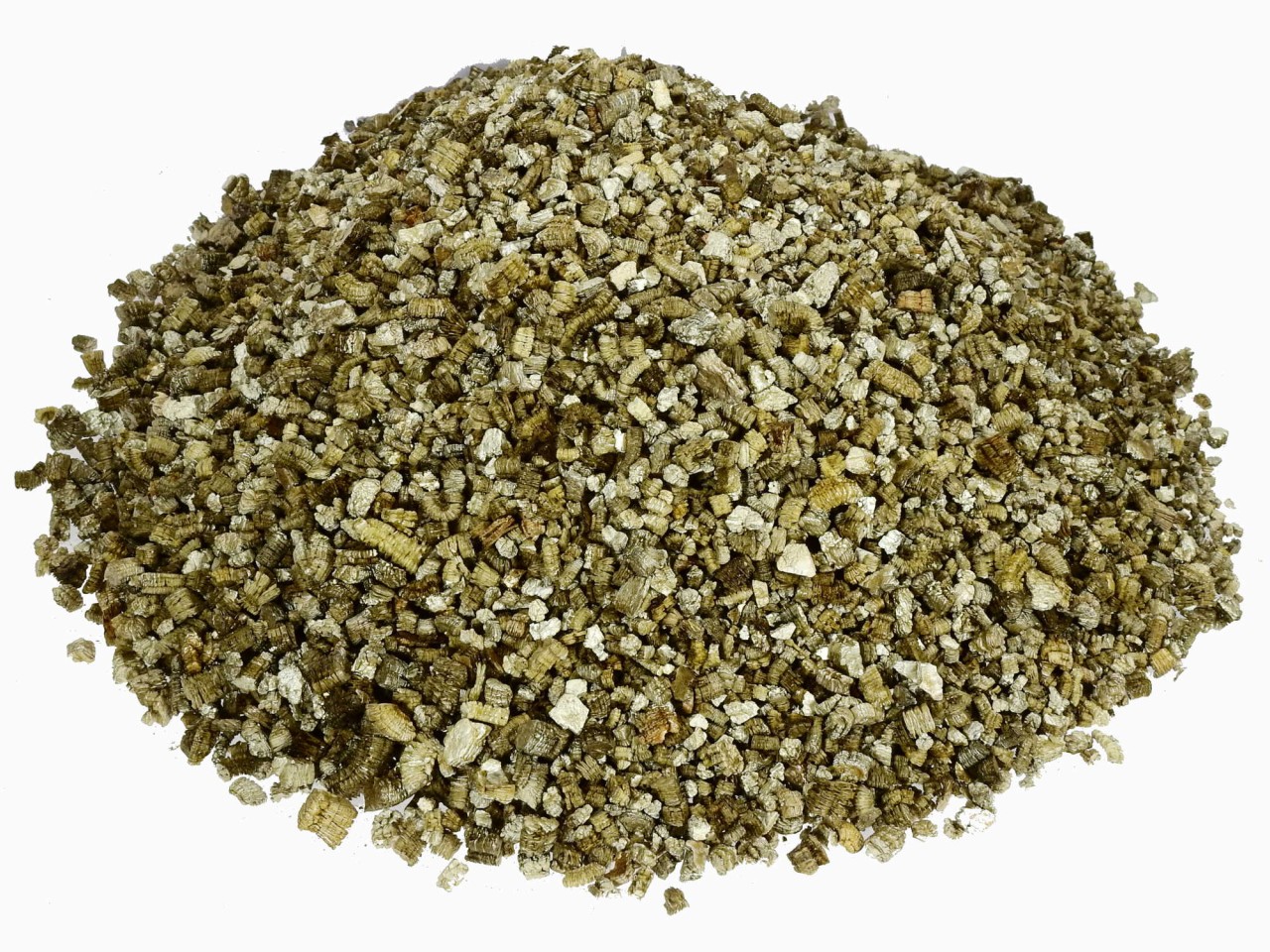Vermiculite was first described in 1824 for an occurrence in Millbury, Massachusetts. Its name is from Latin vermiculare, "to breed worms", for the manner in which it exfoliates when heated
In horticulture, it is used for improving soil structure, heat balance and improving nutrient supply. It is structurally stable, heat insulating, elastic, germ-free, and has a high absorption capacity. The pH value:is neutral.
Due to its valuable properties, vermiculite is increasingly used in both professional horticulture and amateur gardeners. As a clay mineral, it can absorb and release cations and thus plays a major role in nutrient supply. The availability of ammonium (nitrogen), potassium, calcium, magnesium and iron is facilitated for the plant.
Often vermiculite is also used as a growing medium. Especially during germination it unfolds its heat-insulating properties and is therefore a fantastic covering medium.
When used with perlite, it ensures the absorption of excess water and optimizes aeration. Gardeners who have clayey soils with frequent waterlogging can use vermiculite to loosen the soil while regulating water balance. Optimal is vermiculite in combination with our pumice (Eifelbims)
BASE PRICE:
| QUANTITY | € / litre |
| 1 x 3l | 0,90 € |
| 1 x 6l | 0,90 € |
| 2 x 6l | 0,85 € |
| 3 x 6l | 0,85 € |
| 4 x 6l | 0,80 € |
| 5 x 6l | 0,80 € |
| 6 x 6l | 0,75 € |




















































































































